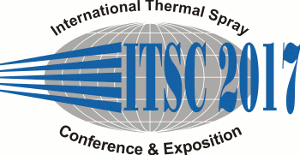
|
5501 |
|
Effects of hydrogen on properties of inductive coupled thermal plasma for spraying B4C/Cu coating |
|
Peng Zhao* / Institute of Plasma Physics, Chinese Academy of Sciences, P.R. China Qijia Guo/ Institute of Plasma Physics, Chinese Academy of Sciences, China Lin Li/ Institute of Plasma Physics, Chinese Academy of Sciences, China Qiujiao Zhou/ Institute of Plasma Physics, Chinese Academy of Sciences, China Junlin Chen/ Institute of Plasma Physics, Chinese Academy of Sciences, Anhui |
|
B4C/Cu coating is a promising candidate for plasma facing material (PFM) in fusion device, because it can mitigate the thermal stress caused by the mismatch of the coefficient of thermal expansion (CTE). Thermal Plasma spraying technology is supposed to be suitable for the B4C/Cu FGM preparation. Inductively coupled plasma (ICP) is a type of electrodeless discharge, so the problems of electrodes erosion or contamination can be eliminated. In this work, inductively coupled thermal plasma (ICTP) is used to prepare the B4C/Cu coating. The operating stability of plasma torch and the thermal conductivity of plasma are important in the preparation process. However, the high gas temperature of pure Ar plasma can damage the torch and it's thermal conductivity is low. The hydrogen has high thermal conductivity, so the mixture gas of Ar and hydrogen is used as sheath gas to protect the ICP torch and enhance the thermal conductivity of the plasma. Optical emission spectroscopy and ICCD are used to diagnose the properties of ICTP to determine the optimum condition for preparation process. In addition, to control the preparation process, some atomic emission lines and prepared material changed with experiment conditions will be studied. All the plasma properties would give us an insight on the mechanism and the possibility of improving the process. |